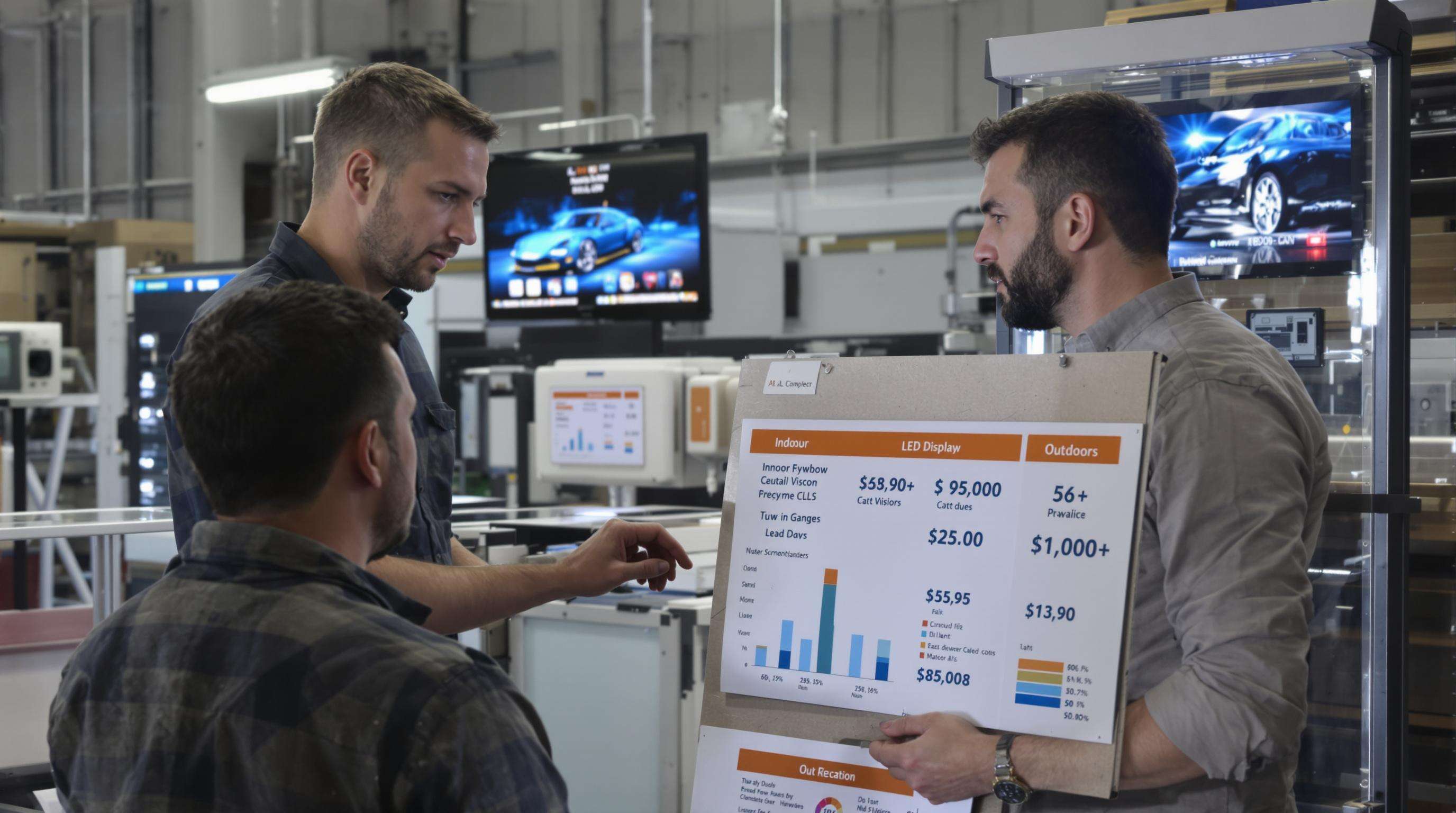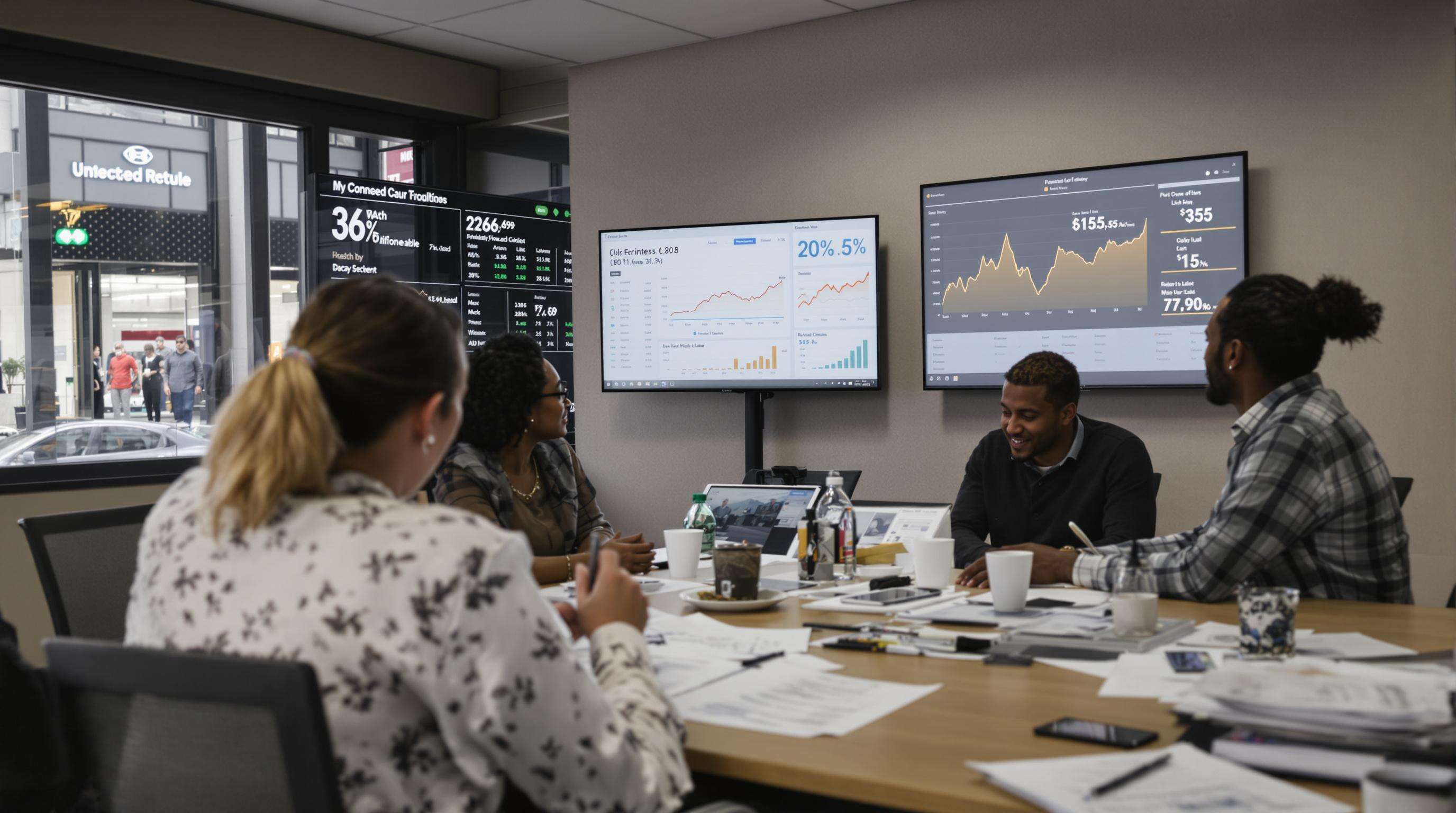For small businesses competing in crowded markets, LED display advertising delivers 7x higher visual engagement than static signage. These high-brightness screens capture attention at 2.5x the distance of traditional posters, making them ideal for storefronts and event promotions.
The economics prove compelling – switching from printed campaigns to digital displays eliminates recurring printing costs while enabling real-time content updates. A single LED screen can replace months of poster printing budgets, with 78% of adopters reporting reduced marketing expenses within 12 months.
Modern LED systems enable granular audience targeting through scheduled content rotations. Restaurants can showcase lunch specials at noon and dinner menus by evening, while retailers promote flash sales during peak foot traffic hours. This content flexibility drives 34% higher conversion rates compared to fixed marketing materials.
Interactive LED configurations take engagement further through touchscreen menus, QR code integrations, and motion-activated displays. A recent study found interactive LED walls increased average dwell time by 2.1 minutes and boosted accessory sales by 19% for boutique retailers.
Localized campaigns achieve particular success, with LED displays generating 23% more social media shares per impression than traditional billboards. When a Chicago bakery animated its cupcake specials on window-facing LEDs, foot traffic increased 41% week-over-week – demonstrating how dynamic visuals drive immediate local action.

Indoor and outdoor LED display systems exhibit distinct cost profiles driven by technical requirements. Indoor installations typically range from $1,800–$4,500 per screen including hardware, while outdoor units average $3,200–$8,000 due to weatherproofing and structural reinforcements. Key differences:
| Cost Factor | Indoor Solutions | Outdoor Solutions |
|---|---|---|
| Base Hardware | $500–$3,500/screen | $1,200–$4,500/screen |
| Structural Modifications | $0–$300 | $800–$2,500 |
| Regulatory Compliance | Minimal | $200–$1,500 in permits |
Lower pixel density requirements for outdoor displays (typically 10–20mm vs 2–5mm indoors) partially offset costs, but 73% of businesses report higher long-term maintenance expenses for exterior installations.
A $10,000 LED display budget typically allocates:
Outdoor implementations often require unexpected line items like concrete foundations ($1,000–$4,000) and electrical upgrades ($500–$3,000). Recent industry data shows 68% of small businesses underestimate installation complexity, leading to 22% budget overages on average.
Four frequently overlooked expenses impact LED display ROI:
A recent AV maintenance study revealed budget displays require 30% more frequent servicing than commercial-grade equivalents, with repair costs averaging $120–$450 per incident. Proactive thermal management systems can reduce these expenses by up to 65% in outdoor installations.
Pixel pitch–how far apart individual LEDs are–affects picture clarity and price. For small businesses, a pitch size of 3mm-6mm tends to be the sweet spot for the majority of indoor applications such as on a menu board or retail display, where the readability ranges from 10-20 feet. Applications that are outdoors (such as parking lot signs) can use 8-10mm, drop that pitch to save money and still be readable when viewed in a viewing distance of 30 ft. or more. Tighter could be deemed better: one recent report suggested that reducing the pixel pitch from 10mm to 6mm enhances close engagement by up to 27%, so closer pixel pitches are recommended for customer interaction zones.
Indoor LEDs work well at 800-1,500 nits, while outdoor LEDs require 5,000-8,000 nits to fight the glare from sunlight. Budget shoppers should look for 4,000-nit panels for semi-shielded outdoor locations such as building overhangs and can expect 83% visible at 60% of the cost of full-sunlight models. Indoor spaces are over-lit causing an 18-22% energy inefficiency per year and outdoor signage content loses 40% visually faster.
Modern LED displays consume 30-40% less power than equivalent models from five years ago. Prioritizing Energy Star-certified panels cuts annual operating costs by $12-$18 per square foot through:
This efficiency gain typically offsets the 8-12% upfront cost premium within 18-24 months for businesses operating displays 12+ hours daily.

Measuring the profitability of LED display investment needs to consider the short and long term. Payback period is the number of months it takes to recover your initial investment through incremental revenue–for instance, a $10k display that brings in $2.5k in monthly profit breaks even in 4 months. Lifetime value further builds on this comparison by estimating total return over the display’s 6-10 year operating life. It would be too long to explain all the factors, but cash-starved companies love the shorter payback periods, and many companies feel the longer ROI gives a more realistic analysis of long-term profitability. 5 year service life at $4k in annual profit yields $20k in life time value after costs.
LED screens significantly outperform traditional media in measurable ROI through dynamic content and targeted audiences. Static billboards or print marketing incurred ongoing material costs and involved costly manual updating, while digital displays could be updated at the press of a button without incurring additional material costs. According to industry data, LED campaigns result in 3x more engagement retention than printed posters. On top of that trackable attribution is possible, for example through unique codes, or geo-fenced analytics. Their average savings on customer acquisition costs is 35% and they recover campaign gains immediately.
An independent furniture store spent $18,000 for a window-facing LED display that shares hardware and content software. They advertised ephemeral discounts to evening commuters and tracked sales therefrom through QR code scans. So, profit tracked to display after the first 12 months was over $94k. Minus installation and content spend brought the net profit to $76k–a 422 percent ROI. Sales lift continued after promotion driven by continued brand exposure that attracted local foot traffic.
Preventative maintenance can save you 35% to 50% of replacement/repair costs over more reactive methods. Weekly anti-static cloth cleaning prevents dust buildup that compromises brightness uniformity while bi-monthly cable integrity and ventilation performance are checked. Nowadays loads of budget displays, offer the convenience of modular design, which eliminates the need of swapping out the entire unit and you need to only purchase the display panel and not the whole unit.
Update control software quarterly to access energy-saving algorithms that lower power consumption by 18-30% annually. For outdoor installations, apply protective coatings every 6-12 months to guard against environmental wear, extending display lifespan by 2-3 years.
Address 73% of minor LED display issues without technician fees through systematic checks. Start by reseating all signal connections and rebooting the controller - this resolves 40% of reported blank screen incidents. Use built-in diagnostic tools to identify faulty driver ICs, then consult manufacturer documentation for safe component replacement procedures.
For temporary pixel anomalies, many displays include pixel-refresh utilities that restore normal operation. Keep spare power supplies and signal extenders onsite to minimize downtime during critical advertising periods. Document all maintenance activities to establish performance baselines and accelerate warranty claims when professional intervention becomes necessary.
Contemporary LED sign systems have the ability to turn fixed facades into a dynamic sales platform for retailers. Narrow-pixel-pitch (below 3mm) models produce sharp visuals that are easily seen by foot traffic, and weatherproof casings shield against UV and moisture exposure. Strategic vertical mounting options in small window niches can feature rotating promotions, seasonal styles, or even live inventory updates. A study shows that 73% of the public thinks the digital window displays are more eye-catching than print tokens.
Time-sensitive LED content strategies amplify event marketing impact. Pop-up stores use pre-programmed templates for flash sales countsowns, while restaurants sync menu boards with POS systems to highlight low-stock specials. Modular display walls enable quick reconfiguration for holiday themes or sponsorship activations. Best practices include:
With CMS based on the cloud, one can now manage the remote LED network under centralized control. Franchisees keep the brand look&feel, but still allowing for 15-20% variation in content that can be set up so that local managers have a freedom to choose. The brand recall rate of the Sync Ads is 34% higher than that of the Standalone Ads. Real-time usage dashboards help you track engagement with content versioning tools that provide a safeguard against outdated messages in the field.
LED displays offer higher visual engagement, enable real-time content updates, and allow for targeted audience interactions, significantly enhancing marketing performance compared to static signage.
Switching to LED displays can reduce marketing expenses by eliminating recurring printing costs and allow businesses to easily update content in real-time, resulting in lower long-term spending.
Yes, interactive LED displays can increase engagement and prolong dwell time, which leads to higher conversion rates and potentially increased sales for businesses.
Factors include indoor vs. outdoor placement, pixel pitch, brightness requirements, and energy efficiency. Cost implications should also consider installation and hidden expenses associated with maintenance.